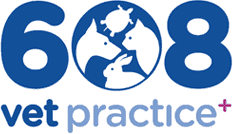It is beneficial to both owner and the pet to consider neutering.
From population control to disease prevention, there are many benefits of neutering dogs and we would advise any owner wishing to breed their dog to think this through thoroughly. Our vets will happily discuss the process and benefits/risks of neutering but here is some information to help you make your decision.
Spaying a Female dog- ovariohysterectomy:
What are the advantages?
- She can no longer have puppies.
- She will no longer come into season, so does not need confining every 6 months, and no mess.
- She cannot have false pregnancies long term. Although, she may have one final one just around being spayed as the hormone levels change.
- The risk of mammary and other hormone-dependent tumours have been shown to be reduced if a bitch is spayed before 18 months of age.
What are the disadvantages?
- She requires a general anaesthetic and, however fit she is, there is always some risk. In addition, there will be some post-op care required.
- Some breeds are prone to coat changes, such as Irish Setters and Spaniels. The coat becomes fluffier and can lose its shine. Often owners make sure they are trimmed more to compensate.
- Once neutered, her metabolic rate goes down by up to 30%. If you feed her the same, then weight gain follows with time. This does not need to happen if you adjust her feeding and diet. She can remain slim and trim.
Urinary incontinence is a common finding in older bitches across the board. It has previously been thought to be related to having been spayed. However, in more recent studies, it has been found that there is not a statistical difference between the spayed and non-spayed groups and as we have more spayed females nowadays in our local population, you will obviously numerically find that more of these leak urine when older. The age of neutering also does not appear to make a difference. We have a number of effective medications that can be used if urinary incontinence does occur. Keeping your dog slim will also help with her ability to hold her urine successfully.
Bitches are usually spayed approximately 3 months after their season.
We can also spay before the first season and we would do this at around 6 months of age.
Castrating a Male Dog
What are the advantages?
- He can no longer father puppies. Please note, he is not sterile from day one, it can take a few weeks more for him to become sterile.
- He cannot develop testicular cancers.
- Prostate problems are much less likely.
- Certain types of tumours associated with the prostate and around the tail-base or anus are much less likely.
- Certain types of hernia are much less likely.
- In younger dogs, male hormone-driven behaviour is likely to fade, such as mounting or marking. Hormone-driven behaviour in older dogs may also improve after castration but it has usually become more learnt and ingrained so the changes may not be as marked as in a younger dog.
NOTE - castration is not necessarily the answer to having a quieter dog. You may find they pay a bit more attention to you at training, so the training is more effective, but it will not help on its own. Many aggressive dogs will NOT be helped by castrating them, as aggression is frequently due to fear rather than out and out dominance or territorialism. Speaking to one of the vets will help you to make a decision about castration and whether this will influence your dog’s behaviour.
What are the disadvantages?
- He requires a general anaesthetic and, however fit he is, there is always some risk. In addition, there will be some post-op care required.
- Some breeds are prone to coat changes, such as Irish Setters and Spaniels. The coat becomes fluffier and can lose its shine. Often owners make sure they are trimmed more to compensate.
- Once neutered, his metabolic rate goes down by up to 30%. If you feed him the same, then weight gain follows with time. This does not need to happen if you adjust his feeding and diet. He can remain slim and trim.
What is involved in the operation?
Telephone your nearest surgery to arrange a date for the operation. You will need to withhold food from midnight the previous evening, but leave water down until 8am.
- Pre-op check: We need to be sure that your dog is fit and well to have a general anaesthetic. This check-up is done on either the day, at the same time as a previous vaccination or examination, or at an appointment (usually) on the operation day. We also need to check that female dogs are not showing any signs of a false pregnancy (although this can sometimes start up a short time after the operation) or any signs of a new season.
- After admittance that morning (you will be given the time when you book), your dog will be given a pre-med injection which is a combination of pain relief and sedation, so they can settle down and relax. The operation will take place under a general anaesthetic, but we cannot give you a precise time. Male dogs have their testicles (+/- scrotum) removed, and depending on the technique used, there may or may not be stitches visible. Female dogs have their ovaries and uterus (womb) removed, and again, may or may not have visible stitches.
- The dogs are closely monitored during the operation and on recovery, making sure they remain warm and comfortable. Once recovered, we send them home with additional painkillers for the next few days.
What nursing care will be required after the operation?
On the evening of the operation, your pet will probably still be a bit sleepy but should be back to their usual self the following day. Anaesthetics can cause a sensitive stomach, so it is important to feed a small light bland meal (such as fish or chicken, or a good ‘recovery food’ that you can purchase from the surgeries) and some water to drink. It is also important to keep them warm and quiet this evening to aid their recovery.
It is important that their exercise is limited until the sutures are removed. This is in order to restrict tension on the wound and avoid the risk of bruising, swelling or possibly rupture. Therefore, we ask all patients are only allowed short lead walks and are not allowed to run around the house/garden or up/down stairs and that they do not jump on/off furniture. It is important that they do not continually lick and disturb the wound as this can inhibit healing. If this becomes a problem, a protective Elizabethan collar or ‘doughnut’ can be purchased from the surgery. We also sell bodysuits.
We will ask you to bring them back for a post-operative check, usually with a nurse, 3-5 days after the operation to check how the wound is healing. Then again in 10-14 days after surgery to have any sutures removed.
If you have any worries, you can contact your nearest surgery. At night time, you should ring the main Solihull surgery on 0121 705 3044.
Long term: their metabolic rate will go down by up to 30%, so you will need to watch their weight.
In time, moving to a diet that is made for neutered adults is a good idea and helps to avoid excess weight, obesity and the problem this can bring.




